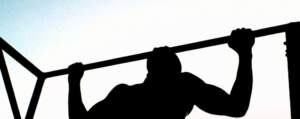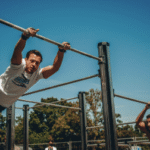The Crucial Role of Rest and Recovery in Private Calisthenics
In the high-intensity, results-driven culture of Houston, the instinct is often to push harder, train longer, and take fewer days off. But in a discipline as demanding as calisthenics, this mindset is the fastest path to plateaus, burnout, and injury. The real secret to unlocking your strength and mastering advanced skills doesn’t happen during the last grueling set of pull-ups; it happens when you’re resting.
A one-on-one calisthenics coach’s most important job isn’t just to push you during your session—it’s to intelligently manage your fatigue and program your recovery. This guide will provide a detailed look into the science of recovery and explain why it is the most critical, yet often invisible, component of your private training journey.
Pillar 1: The Science of Gains – Why Rest is When You Get Stronger
Training is the stimulus, but recovery is where the magic happens. Your body doesn’t build strength during the workout; it builds strength in response to it. This process happens on multiple levels.
Muscle and Connective Tissue Repair: Every training session creates microscopic tears in your muscle fibers. During rest, your body initiates a process called muscle protein synthesis, using protein from your diet to repair these fibers and rebuild them thicker and stronger than before. Crucially, this also applies to your tendons and ligaments, which receive less blood flow and take even longer to adapt and strengthen.
Central Nervous System (CNS) Recovery: Calisthenics is highly neurological. Mastering a handstand or muscle-up requires your brain to send incredibly precise and powerful signals to your muscles. This taxes your CNS, and just like your muscles, it can become fatigued. CNS fatigue leads to decreased strength, poor coordination, and a lack of motivation. Only proper rest can restore it.
The Principle of Supercompensation: This is the core concept of all training. After a workout, your performance temporarily dips due to fatigue. With adequate rest and nutrition, your body recovers not just back to its original baseline, but to a slightly higher level. This new, higher baseline is “supercompensation.” If you train again too soon, you interrupt this process and dig yourself into a deeper hole. If you wait too long, you lose the adaptation. A coach’s job is to time your next session perfectly within that supercompensation window.
Pillar 2: The Coach’s Toolkit – How Recovery is Programmed
A private coach doesn’t just leave recovery to chance. They strategically build it into your entire training plan.
- The Deload Week: The Strategic Step Back
What it is: A planned week of significantly reduced training intensity and volume, typically programmed every 4 to 8 weeks. This does not mean a week off on the couch.
What it looks like: You might still come in for your sessions, but the focus will be on light, technical work, mobility drills, and perfect form on basic exercises. The goal is to move and practice without accumulating fatigue.
Why it’s essential: A deload week allows your body and CNS to fully recover from the accumulated stress of the previous training block. It’s the secret to preventing overtraining and ensuring you can continue making progress for months and years on end. Many athletes report hitting new personal records in the week immediately following a deload.
- Active Recovery Sessions: The “Grease the Groove” Days
What it is: Low-intensity activity performed on rest days to promote blood flow and aid recovery without causing further stress.
How a coach uses it: Your coach might assign “homework” for your off days. This is especially important in a demanding environment like Houston where stress levels can be high.
Examples:
A 30-minute brisk walk in Memorial Park (during cooler parts of the day).
A light swimming session.
A 15-20 minute mobility and foam rolling routine at home.
Practicing a low-intensity skill, like a basic plank or wall-assisted handstand hold, for short durations.
Pillar 3: The Houston Factor – Managing Environmental Stress
Training in Houston presents unique recovery challenges that a good coach will actively manage.
Heat and Humidity: Training in Houston’s climate places a massive additional stress on your body. You lose more fluids and electrolytes through sweat, and your body works harder to regulate its temperature.
A Coach’s Role: A private coach will be vigilant about your hydration status. They will insist on proper water intake before, during, and after your session and may recommend specific electrolyte supplements to replenish what’s lost. They will also adjust the intensity of outdoor workouts on particularly brutal summer days to manage the heat stress.
Pillar 4: The Lifestyle Components – The Foundation of Recovery
A coach’s guidance extends beyond the training session itself. They will constantly reinforce the two most powerful recovery tools you have.
Sleep: The Ultimate Performance Enhancer
Sleep is when the vast majority of muscle repair, hormone regulation (like the release of Human Growth Hormone), and CNS recovery occurs. A coach will emphasize the importance of aiming for 7-9 hours of quality sleep per night, as a lack of sleep will sabotage even the most perfectly designed training program.
Nutrition: The Building Blocks for Repair
You can’t rebuild a house without bricks. Your coach will ensure you understand the critical role of nutrition, especially:
Adequate Protein: To provide the amino acids needed for muscle repair.
Sufficient Calories: To fuel your workouts and the energy-intensive process of recovery.
They will provide general guidelines and often work in tandem with or refer you to a registered dietitian for a detailed plan.
Conclusion:
In private calisthenics, your coach is your partner in a holistic process. The intense, focused work you do during your sessions is only half the equation. The other half—the crucial half where you actually get stronger—is the intelligent, strategic, and personalized recovery plan they design for you. By prioritizing rest, managing fatigue, and adapting to the unique demands of life in Houston, your coach ensures that your journey to mastering your body is not just fast, but safe and sustainable for a lifetime.

The Crucial Role of Rest and Recovery in Private Calisthenics
Route
Calisthenics Gym Houston Functional Bodyweight Training
Secondary phone: (346) 483-3195
Email: info@calisthenicsclubhouston.com
URL: https://calisthenicsclubhouston.com/
Monday 6:00 AM - 7:00 PM Tuesday 6:00 AM - 7:00 PM Wednesday 6:00 AM - 7:00 PM Thursday 6:00 AM - 7:00 PM Friday 12:00 PM - 6:30 PM Saturday 9:45 AM - 12:00 PM Sunday 3:00 PM - 5:00 PM





